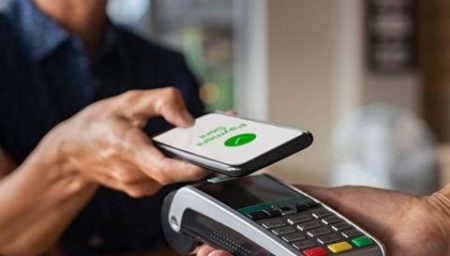Enabling secure and innovative payment experiences via payment tokenization

Payment card networks are the backbone of the card-based payments ecosystem and are responsible for controlling where cards can be accepted, as well as facilitating transactions between merchants and the card issuers. In the current global payment card network industry international and local players cohabit and domestic payment networks are actually growing in popularity and legitimacy across all continents.
As expectations to better address local needs, provide lower-cost options, and foster competition increases, banks and merchants can also turn to domestic schemes to benefit from their tokenization services in their respective ecosystems.
Payment tokenization is essential for completing secure digital payments and reducing transactional friction across channels. It is used to protect a card’s primary account number (PAN) from criminals by replacing it with a unique string of numbers when it is used to pay online.
With the tremendous growth of mobile and online payments, the role of Token Service Providers (TSPs) has come to the foreground. These entities generate the tokens, store the card data and provide payment tokens to any registered token requestors. The requestors include third-party wallets (OEM Pay) or bank wallets, messaging apps that integrate payment, eCommerce merchants and Secure Remote Commerce systems.
Whether powered directly by payment networks or outsourced to a third-party, TSPs should be central actors in the tokenization space within their local market for 3 main reasons:
Payment networks, especially when they have a domestic coverage, are essential when it comes to developing and offering solutions that are relevant to the local market.
In proposing their own tokenization service to local issuers, payment networks adopt a key role in the shift to mobile proximity payments and are engaged in the future of online payments. In addition to tokenizing their own cards, they would benefit from digital payments made with co-badged cards. If a physical card is co-badged, it should also be the case in the digital world.
The time to innovate is now. Having their own tokenization service in-house or outsourced to a third-party tokenization service would enable domestic payment networks to drive their own digital payment roadmap. They would also be positioned to enable new use cases with the local ecosystem made up of banks, major retailers, wallet providers, popular messaging apps in the region, and more.
These payment networks need to extend their remit beyond physical cards and enrich their offering by digitizing cards across all wallets and payment options, for proximity, in-app, P2P and eCommerce payments.
By controlling tokenization, they can develop products suited for the local market, define their go-to-market across all issuers and token requestors, and control financial and business models.
Integrating network tokenization in the local payment ecosystem does not impact the transaction processing flow – the acquiring and processing integrations remain in place. This is very relevant for markets where the issuing and acquiring bank is the same. In some markets, local aggregators who are already involved in the processing of transactions, such as local switches, will act as TSPs on behalf of the domestic schemes and propose shared infrastructures.
Understanding the evolving payment ecosystem and how it impacts a domestic payment network’s business models is crucial for payment networks seeking to enable card digitization. As a long-time partner of payment issuers and domestic players, as well as all major Original Equipment Manufacturers (OEMs) across the globe, IDEMIA is ideally positioned to help enrich services for payment schemes. We work with networks to enable them to acquire strategic technical assets that will enable card digitization across all wallet options, as well as in the online world.
To find out more about tokenization for payment networks and how to ensure the successful deployment of new digital payment services for issuers, download our flyer below.